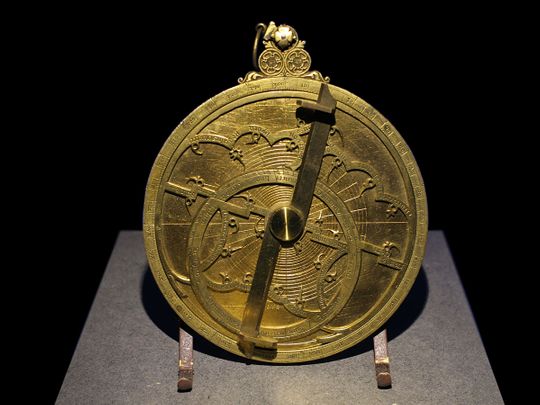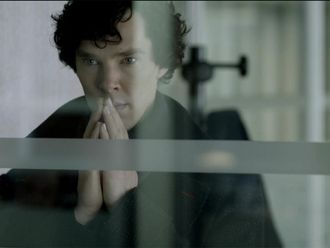
Long before there were smartphones, people in ancient Europe and Arabia were swiping another device that worked in an uncannily similar way – it could give you the time, location, your horoscope, and help you make decisions: astrolabes.
Click start to play today’s Word Search, where you can spot the astrolabe.
Astrolabes were incredibly similar to hi-tech, top of the range smartphones we use today – they usually tended to be overpriced, were fully customisable and had a variety of bells and whistles. The word astrolabe roughly translates to “star taker” in Greek, and the device travelled from Europe to the Middle East in the eight century.
Like the smartphone, astrolabes came into use at a time of economic prosperity, during the reign of the Roman Empire, and stayed popular right until the 18th century. Today, however, you might see traces of it in modern analog gadgets like a slide rule, or some of the most coveted Swiss watches.
But what exactly did these ornate devices do?
According to the Smithsonian Magazine, the official journal published by the Smithsonian Institution in the US, they had blended uses. In the Arab world, astrolabes have a strong, long history as a tool to find the qibla (direction towards Makkah), as well as to alert Muslims about the five prayers. And in Europe, during the Middle Ages, astrolabes had a completely different function: they were used as an astrological tool to make decisions – people asked it questions like whether they should go to battle or how to go about financial dealings.
From the invention of the astrolabe came new developments and methods in the field of maths, along with the early progress of astronomy. It’s also likely the astrolabe was among the navigational tools Christopher Columbus used when he explored the New World.
But by the 17th and 18th centuries, with the development of mechanical clocks, and new, more rational approaches in science, astrolabes started to fall out of use. The strikingly beautiful devices still exist in collectors’ homes today, and are sometimes passed on from one generation to the next – as relics of a past era.
Have you seen or used an astrolabe? Play today’s Word Search and tell us at games@gulfnews.com.









